What Is an Electronic Lock Used For?
Electronic locks are modern and secure alternatives to traditional mechanical locks. They offer more than just basic functionality and are commonly used to enhance security in various environments, including residential, commercial, and industrial settings. These locks use electronic mechanisms and components to control access, eliminating the need for traditional keys and offering advanced features that make them more versatile and secure. In this article, we will explore the many uses of electronic locks, their benefits, types, and some frequently asked questions.
What Is an Electronic Lock?
An electronic lock is a locking device that uses electrical signals and mechanisms to lock and unlock doors or access points. These systems typically use electronic components such as keypads, cards, biometrics, or Bluetooth to grant or deny access. Unlike traditional locks that rely on physical keys, electronic locks provide enhanced security features, including digital tracking, remote control, and keyless entry.
Understanding the Technology Behind Electronic Locks
The core of an electronic lock is its electronic mechanism, which could include a keypad, a card reader, a biometric scanner, or a wireless receiver. These devices communicate with the lock’s internal components to engage or disengage the lock based on the provided credentials. Additionally, most electronic locks include backup methods of access, such as mechanical override keys, in case of power failure or technical issues.
What Is the Electronic Lock Used For?
1. Home Security
In residential settings, electronic locks provide homeowners with a modern, convenient way to secure their homes. These locks often integrate with home automation systems, allowing homeowners to lock and unlock doors remotely using smartphone apps or voice commands. For instance, smart locks can automatically lock when you leave home, and unlock when you arrive, offering peace of mind without the need for physical keys.
Enhanced Security Features
Electronic locks are considered safer than traditional mechanical locks because they cannot be picked or bumped. Additionally, many electronic locks come with encryption and tamper-proof designs, which make it much harder for unauthorized individuals to bypass the system. Some models even include features such as voice recognition, facial scanning, or two-factor authentication, further strengthening the security of your home.
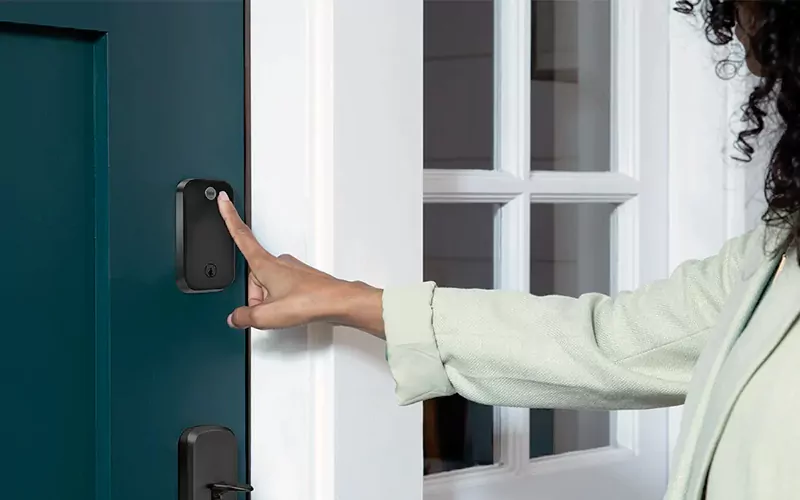
2. Commercial and Office Use
Businesses, including offices, warehouses, and retail stores, benefit from the versatility of electronic locks. These systems provide keyless entry for employees, improving both security and convenience. Access to sensitive areas can be restricted to specific personnel based on role, time of day, or other factors. Furthermore, electronic locks can be integrated with broader access control systems that track when and where employees enter or exit, helping to prevent unauthorized access and ensuring accountability.
Audit Trail Capabilities
For commercial use, electronic locks come with audit trail features. This means that every time the lock is accessed, it records data such as the time, date, and identity of the person who entered. This can be crucial for businesses that need to comply with regulations or monitor access to sensitive areas like server rooms or financial records. This level of accountability is not possible with traditional locks.
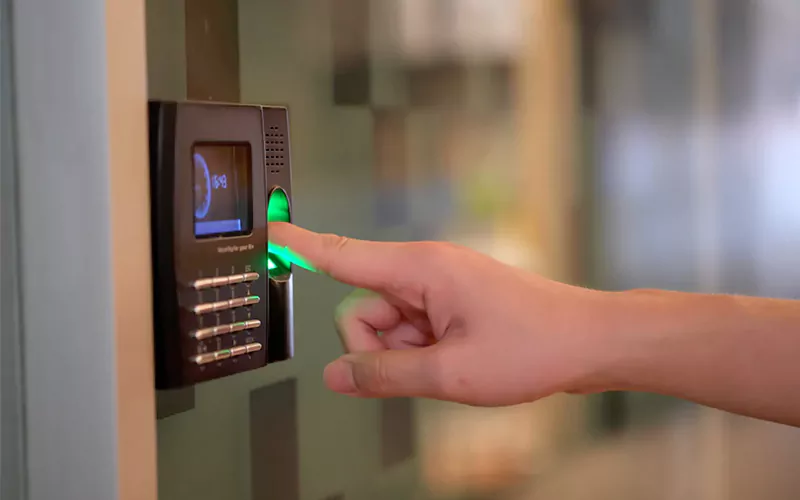
3. Hospitality Industry
In the hospitality sector, especially in hotels and resorts, electronic locks are commonly used to provide a seamless and secure experience for guests. Many hotels have switched from traditional keycards to more advanced systems like mobile access or RFID-based smart cards. These locks allow guests to open their rooms using their smartphones or a keycard, without needing to worry about losing keys.
Convenience for Guests
One of the primary reasons hotels adopt electronic locks is the convenience they provide. With systems like mobile access, guests no longer need to check in at the front desk to receive a keycard. Instead, they can simply use their smartphones to unlock their rooms, saving time and improving the guest experience. Hotels also benefit from electronic locks by remotely locking or unlocking doors when needed.
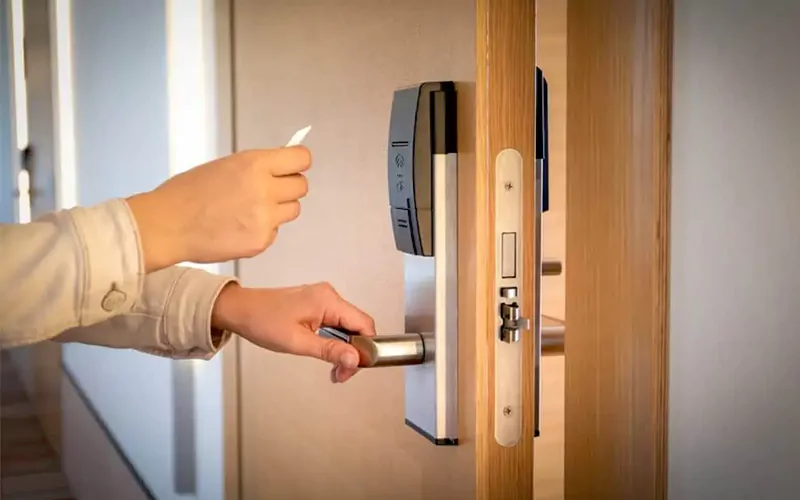
4. Healthcare Facilities
Healthcare institutions, such as hospitals and pharmacies, use electronic locks to secure medication rooms, offices, and other critical areas. These locks ensure that only authorized personnel can access restricted zones, protecting sensitive medical supplies and patient data. Furthermore, the audit trail feature is beneficial for healthcare providers who need to comply with regulations and maintain a high standard of security.
Protecting Medication and Equipment
Hospitals and pharmacies store valuable and sensitive items, such as prescription drugs and medical equipment. Electronic locks are ideal for securing these areas, as they allow only authorized personnel to access them, preventing theft and misuse. Additionally, hospitals can use electronic locks to protect patient records and maintain privacy.
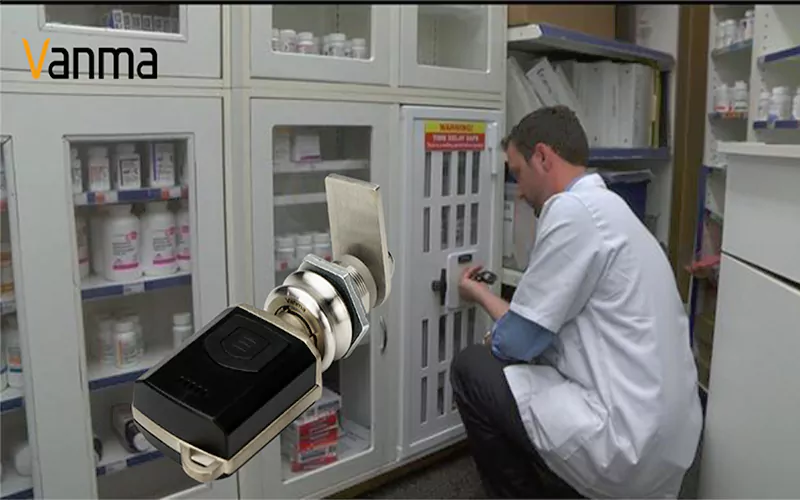
5. Industrial and Critical Infrastructure
Industries that deal with high-value machinery, data centers, or restricted areas often turn to electronic locks to ensure that only authorized personnel can access critical sites. The ability to track and monitor who enters or exits such areas adds a layer of security that mechanical locks cannot offer.
Remote Monitoring
Electronic locks can be connected to remote monitoring systems, providing real-time alerts if unauthorized access is attempted. This makes them ideal for high-security areas like power plants, government buildings, and research labs, where any security breach could lead to significant consequences.
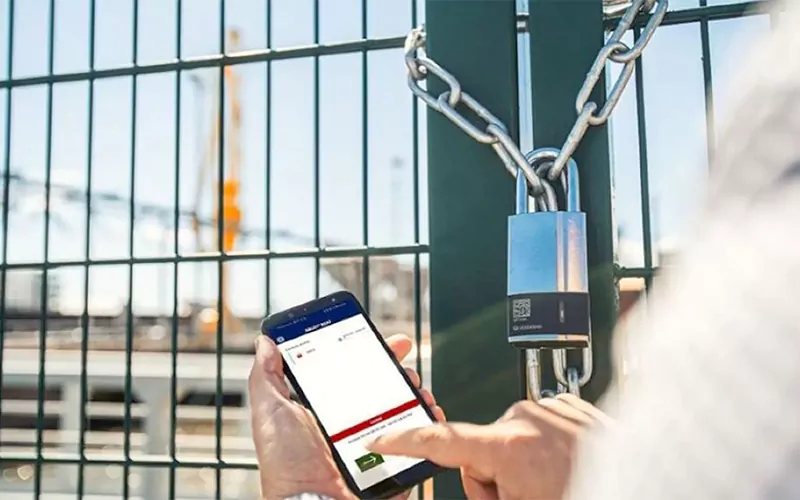
Benefits of the Electronic Lock
Improved Security
Electronic locks offer enhanced security features compared to traditional mechanical locks. These include encryption, advanced authentication methods, and tamper-proof designs that make them more resistant to unauthorized access. Furthermore, the ability to remotely monitor and control access provides an added layer of protection.
Convenience and Keyless Entry
One of the primary benefits of electronic locks is their convenience. With keyless entry systems, there’s no need to carry physical keys. Instead, users can access secured areas through passwords, key cards, biometric scans, or even smartphones. This makes them ideal for both residential and commercial settings where multiple people need access at different times.
Audit Trails and Monitoring
Most electronic locks have the ability to generate audit trails, which log every instance of access. This feature is especially useful in environments that require tight security measures, as it provides a detailed record of who accessed an area and when. It can also help identify any potential security breaches or unauthorized access attempts.
FAQs
1. Are electronic locks more secure than traditional locks?
Yes, electronic locks are generally considered more secure because they are not susceptible to common physical attacks such as lock picking or bumping. They also offer additional features like encryption and the ability to track access, which makes them more reliable than traditional locks.
2. Can electronic locks be hacked?
While it’s technically possible for electronic locks to be hacked, most modern systems use encryption and other advanced security protocols to minimize this risk. Additionally, many electronic locks offer multi-factor authentication, which makes it harder for hackers to bypass the system.
3. What happens if the battery of an electronic lock runs out?
Many electronic locks come with a low battery indicator that alerts users when the battery is running low. In case the battery runs out, most locks allow users to open the door using a backup key or external power source to maintain access until the battery is replaced.
4. How do smart locks work?
Smart locks work by connecting to a network, typically via Bluetooth, Wi-Fi, or another wireless technology. Users can control the lock remotely through a smartphone app or smart home system. They may also offer features like voice control, mobile access, or remote unlocking.
5. Are electronic locks expensive?
While electronic locks tend to be more expensive than traditional locks, they offer more advanced features and security, making them a worthwhile investment, especially for businesses and high-security environments. The added convenience and enhanced security can justify the higher initial cost.
Try Vanma Electronic Lock
You can contact us to request samples, and to experience the convenience of Vanma electronic locks.
Contact Us Now
